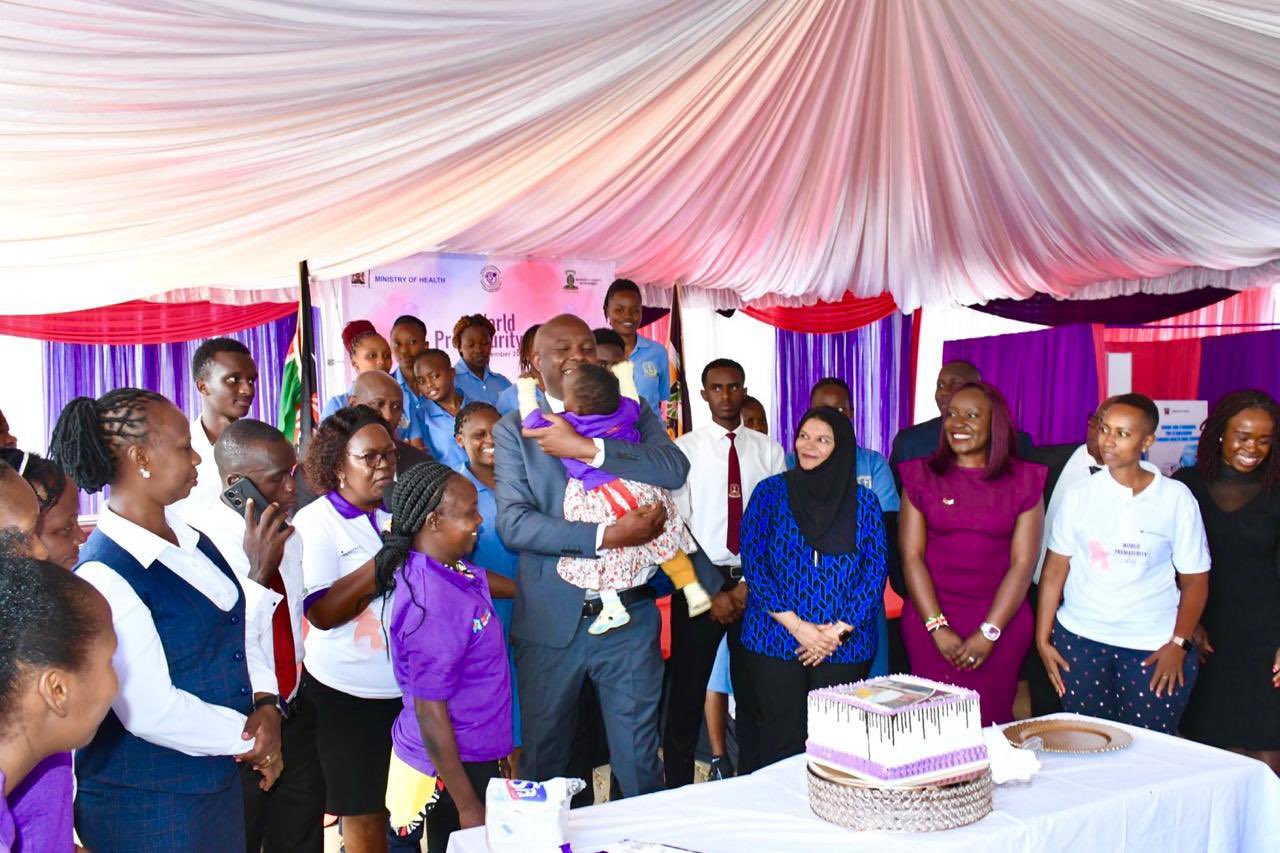
 Murang’a Governor Irungu Kang’ata and Director of Health Products and Technologies at the Ministry of Health Dr Nazila Ganatra with health workers at Murang'a County Referral Hospital on November 17, 2025/MoH/X
Murang’a Governor Irungu Kang’ata and Director of Health Products and Technologies at the Ministry of Health Dr Nazila Ganatra with health workers at Murang'a County Referral Hospital on November 17, 2025/MoH/XKenya has rolled out new national
initiatives aimed at improving the survival and care of premature babies.
The exercise took place on Monday,
as the country marked World Prematurity Day on November 17, 2025, at the
Murang’a County Referral Hospital.
The event was officiated by Murang’a
Governor Irungu Kang’ata and Director of Health Products and Technologies
at the Ministry of Health Dr Nazila Ganatra, who represented the Cabinet
Secretary for Health.
During the commemoration, Ganatra
highlighted that prematurity remains one of the leading causes of newborn
deaths in Kenya.
She, however, emphasised that most of
these deaths are preventable with timely and high-quality care across all
levels of the health system.
She announced the completion of the National
Every Woman Every Newborn (EWENE) Acceleration Plan, a framework designed
to strengthen newborn care from community units up to sub-county and county
hospitals.
To support its implementation, Ganatra
unveiled three national enablers, including the Kenya Newborn Investment Case,
National Mentorship Package for Newborn Care and National Norms and
Standards for Newborn Care.
Murang’a County was recognised for
its leadership and investment in newborn health.
Dr Ganatra commended Governor
Kang’ata for prioritising neonatal care through measures such as enhanced
digital data use, reliable availability of essential newborn medicines,
expanded Kangaroo Mother Care, strengthened community health units, and
infrastructure upgrades, including the expanded Newborn Unit and Biomedical
Workshop.
She noted that these initiatives
align with the government’s Universal Health Coverage (UHC) agenda,
which focuses on a skilled health workforce, digital transformation of health
services, reliable commodity security, and financial protection through the Social
Health Authority (SHA).
Families were encouraged to enroll under SHA to access essential maternal and newborn services without financial
hardship.
Dr Ganatra reaffirmed the
government’s commitment to reducing newborn and maternal mortality.
The doctor called for stronger
county-level action, deeper partnerships, and sustained accountability to
ensure every premature baby receives the care needed to survive and thrive.
About World Prematurity Day
World Prematurity Day is observed every year on November
17 to raise awareness about preterm birth, when
babies are born before 37 completed weeks of pregnancy, and its impact on
families and societies.
It also highlights the need for improved care and prevention strategies for
premature babies.
Its purpose and significance include educating the public on the health
risks associated with preterm birth, which is the leading cause of
death in children under five worldwide.
It mobilises governments, health organisations, and communities to
strengthen neonatal care systems and support families affected by preterm
birth.
The day fosters international collaboration among healthcare professionals,
researchers, and policymakers to reduce preventable newborn deaths.
Statistics show that about one in 10 babies worldwide is
born prematurely and that prematurity complications account for nearly one
million deaths each year, mostly in low- and middle-income countries.
Further, studies show that early intervention, skilled neonatal care and
supportive family environments can significantly improve survival rates.
Kenya has been actively participating in World Prematurity Day to highlight
national efforts to reduce neonatal mortality.
Recent initiatives, such as the EWENE Acceleration Plan,
aim to ensure access to high-quality care for preterm babies across counties.
Hospitals and county governments use the day to launch new strategies, strengthen newborn units, and engage communities in supporting maternal and newborn health.

















